Advance Analytical
เครื่องมือวิเคราะห์ทางวิทยาศาสตร์ขั้นสูง Advance Analytical
Advance Analytical
Hits: 3380
The New Standard for Bench-Top EPR
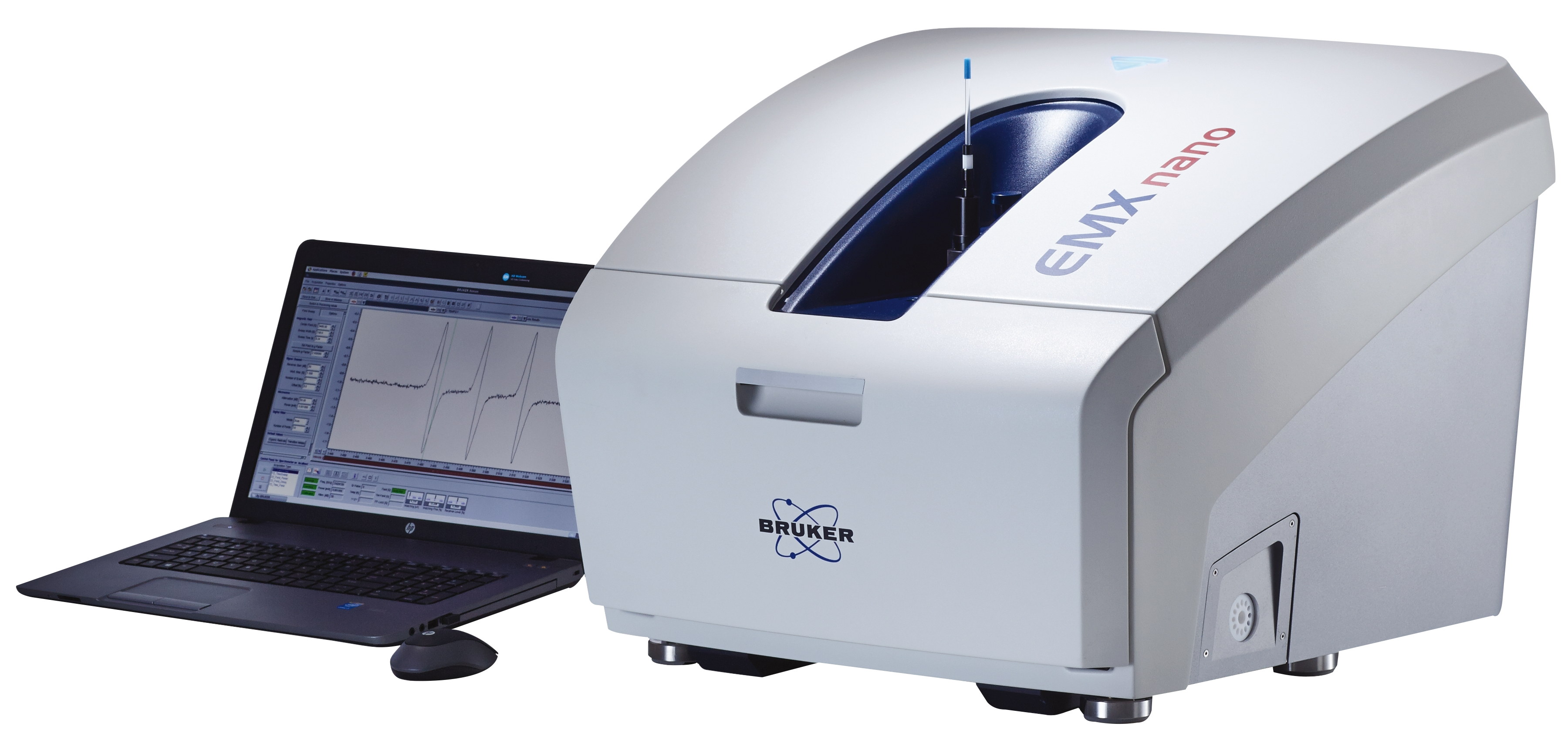
Giving you the power and flexibility you really need in an easy to use compact enclosure, the EMXnano brings affordable highend EPR performance to labs for the first time, delivering a real choice of analysis options.
For the first time in this instrument category quantitative EPR is offered at your fingertip, thanks to a fully calibrated instrument and inclusion of the Bruker patented spin counting module.
Routine Ease of Use with Unmatched Performance
Extending Bruker’s renowned EMX spectrometer family to the bench-top class, the EMXnano is a completely new development featuring the latest digital and microwave technologies. Combined with a new generation of magnet system with full range up to 6.5 kG and a highly efficient microwave resonator, this state-of-the-art bench-top instrument is superior in sensitivity and stability, making it ideal for a comprehensive range of analysis and teaching applications.
The new dedicated bench-top instrument requires minimal infrastructure with a low cost of ownership, making it suitable for a wide range of laboratory types.
Sensitivity and Stability
No matter what the focus of your application is, the crucial required strengths of an EPR spectrometer are sensitivity and stability. The latest generation magnet and microwave technology delivers class leading performance, enabling the EMXnano to combine both ease of use with highest quality EPR data.
Any customer can confidently add, or enhance, their lab with real world EPR:
- Integrated, motorized reference standard (marker) for amplitude and g-factor
- Reference free concentration determination of paramagnetic species (SpinCount)
- Identification of paramagnetic species by spectrum simulation and fitting (SpinFit)
- Spectral library including spin traps
- Dedicated work flows for measurement and analysis
- Remote system diagnostics
The Many Applications of EPR
From cell membranes to nano-diamonds, EPR applications spread far and wide through many fields: chemistry, material research, life science, quantum physics, and quality control.
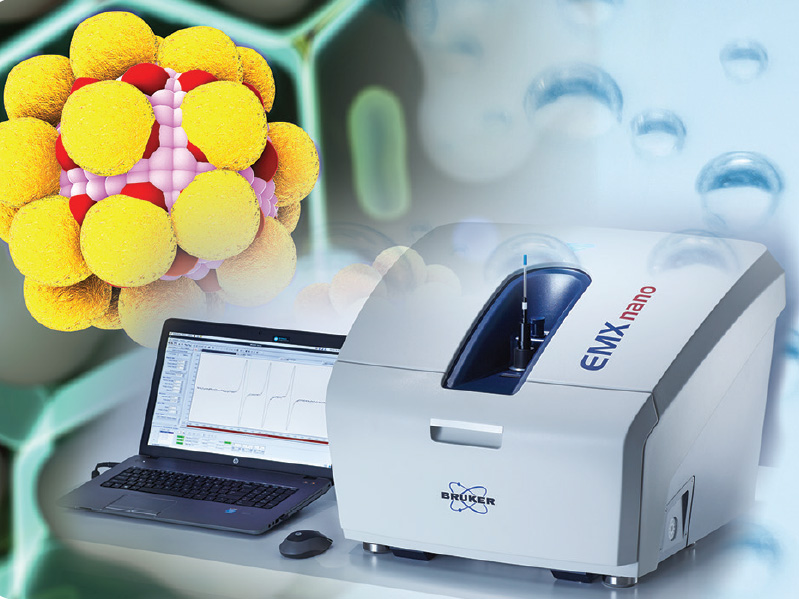
Biological ROS and RNS Detection Part I. EPR Spin Trapping
Reactive Oxygen Species (ROSs) are the main cause of oxidative stress and damage in cells, causing damage to proteins, lipids and DNA. Two leading ROS are radicals such as the superoxide radical (O2·-) and the hydroxyl radical (·HO)
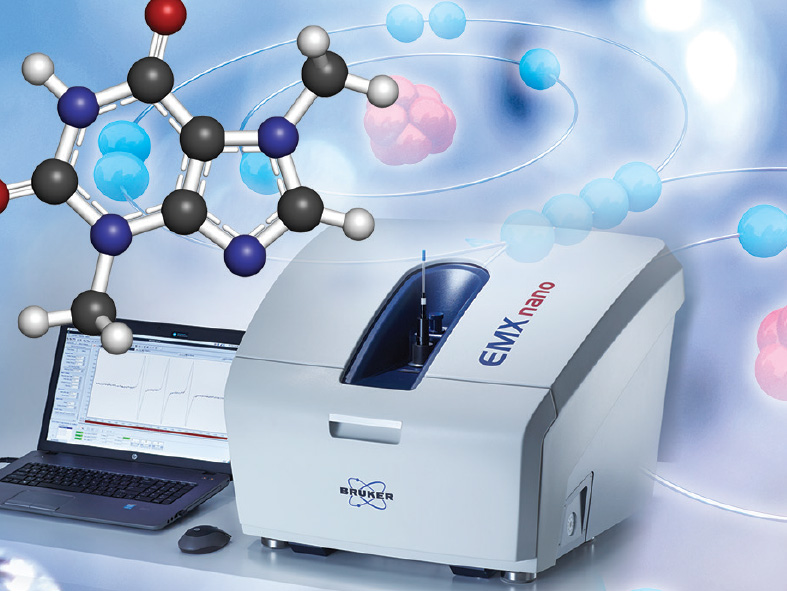
Biological ROS and RNS Part II. EPR Spin Probes
EMXnano can be used effectively for mechanistic studies and kinetic analysis of multiple radicals (ROS and RNS) generated in enzyme reactions.
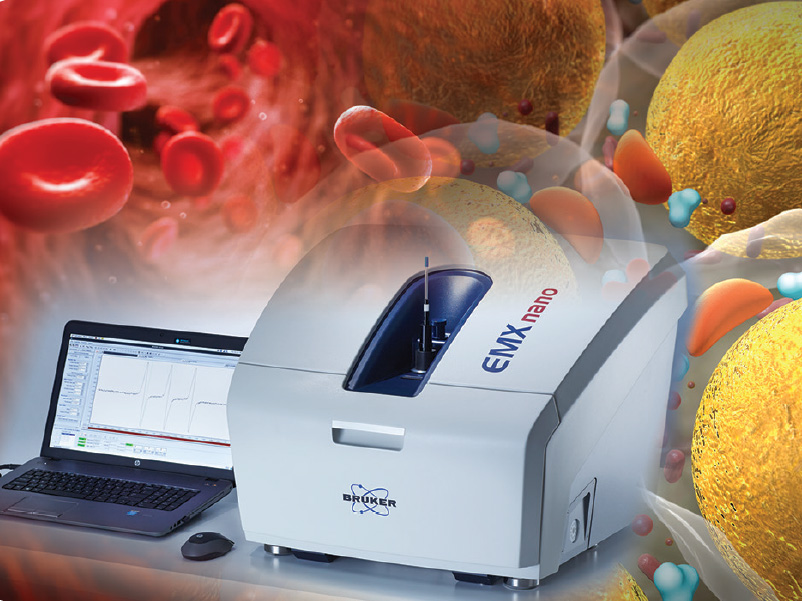
Biological ROS and RNS Detection Part III. Nitric Oxide
The EMXnano provides the means to detect NO by both room temperature and low temperature techniques with high sensitivity.
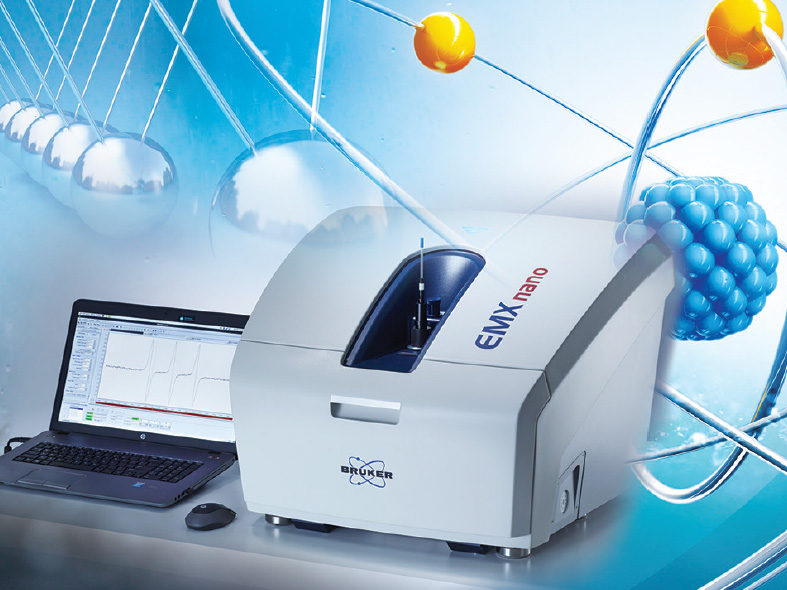
Reaction Kinetics Studied Via EPR
The EMXnano spectrometer ensures high precision results with superior sensitivity thus enabling researchers and students with limited EPR experience to use the power of EPR spectroscopy to identify and monitor reactions rates of free radical reactions in many fields of study.
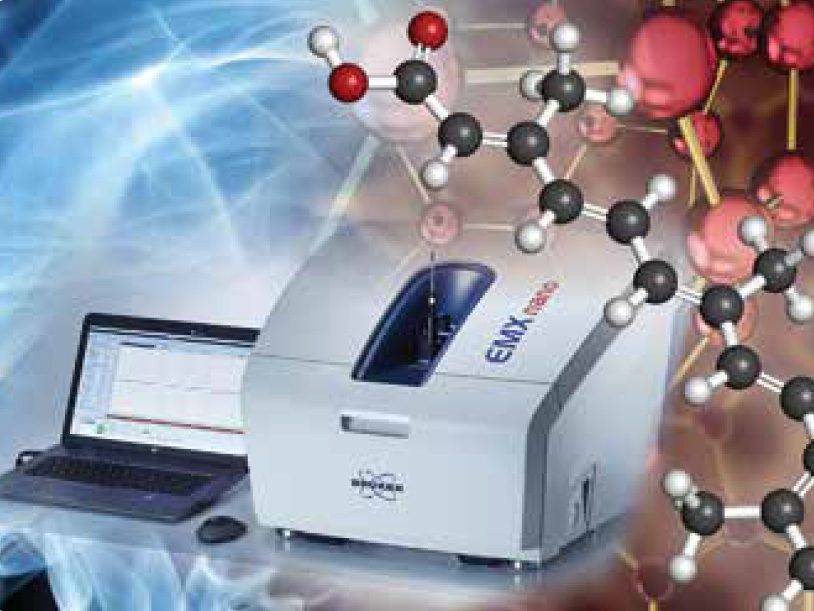
Screening DNP Agents with the EMXnano Benchtop EPR Spectrometer
The EMXnano spectrometer enables researchers and students with limited EPR experience to use the power of EPR spectroscopy to characterize the DNP agents and their characteristics that are important for DNP enhancement.
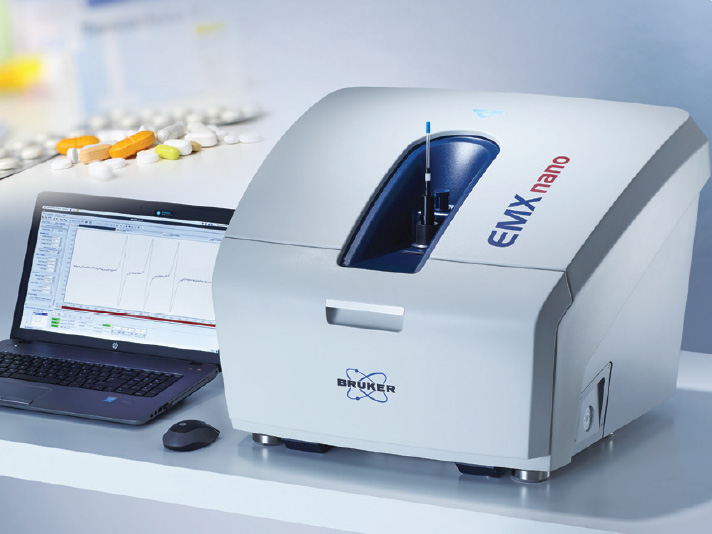
Pharmaceutical Applications of EPR I. Detecting and Evaluating Degradation
The EMXnano is the solution to investigate the stability of pharmaceutical products. With EPR one gains insights into the degradation mechanism so you can optimize product stability.
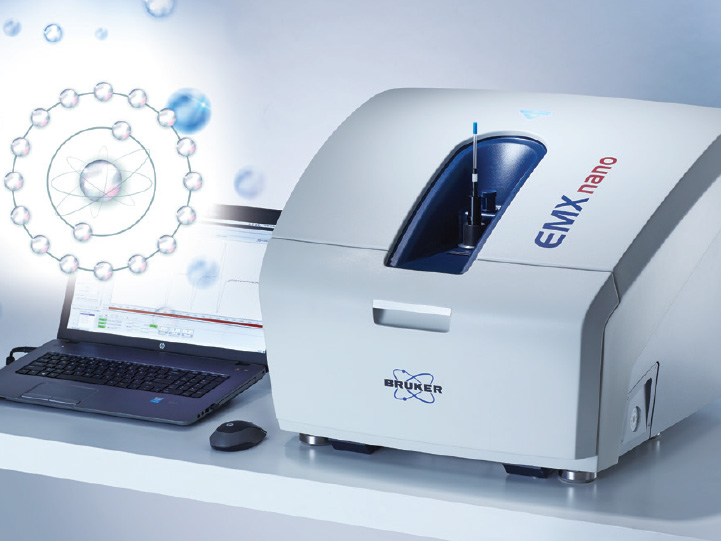
Pharmaceutical Applications of EPR II. Optimizing Stability and Shelf-LifeWith
The EMXnano provides data to predict the stability of APIs, excipients, and formulations. EPR stress studies provide the necessary insights to aid in choosing an appropriate formulation in early development phases.
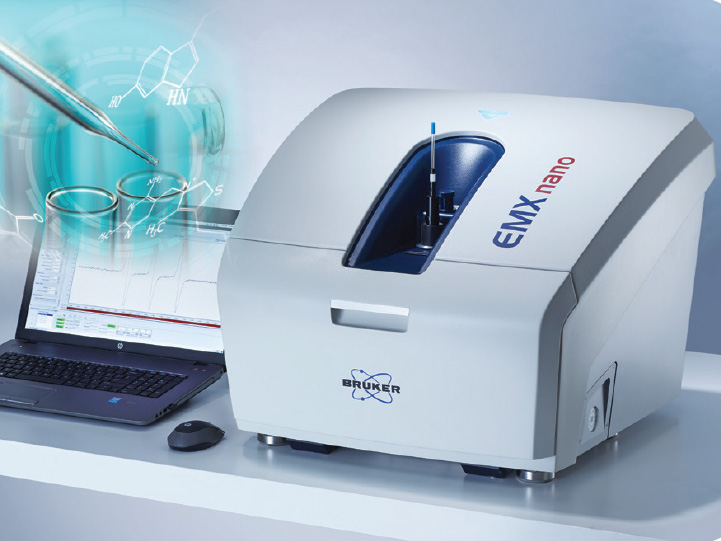
Pharmaceutical Applications of EPR III. Reaction MonitoringEPR
The EMXnano´s capability to monitor catalytic reactions and radical intermediates is crucial to obtain detailed knowledge of reaction mechanisms.
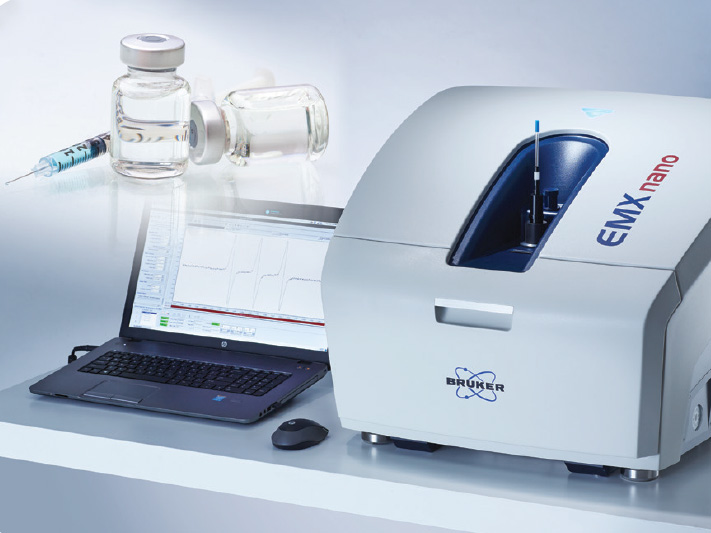
Pharmaceutical Applications of EPR IV. Sterilization Processes
EPR complements the many methods used to analyze sterilization effects. Specifically it investigates the role of free radicals in the degradation of pharmaceutical products.
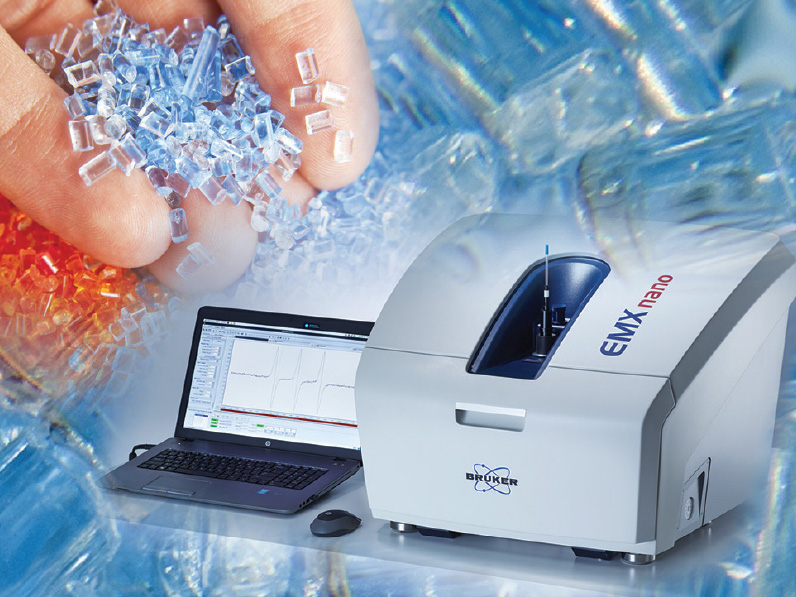
Polymers Polymerization and Degradation Monitored by EPR
To prevent this decomposition, light stabilizers are added to the polymer. By monitoring the EPR signals of these light stabilizer, their effectiveness can be evaluated using the EMXnano.
Contact us
Syntech Innovation Co., Ltd.
388/5 Nuanchan Road, Nuanchan,
Buengkum, Bangkok 10230
388/5 Nuanchan Road, Nuanchan,
Buengkum, Bangkok 10230
0 2363 8585 (auto)
0 2363 8595
081 498 9939

3089375
Today
Yesterday
This Month
All days
333
1549
29083
3089375
Your IP: 216.73.216.80
2026-02-17 04:17





